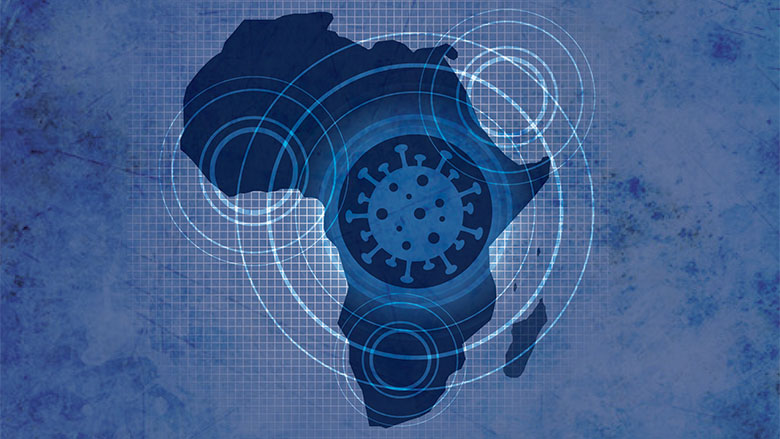By Eric Osiakwan
Introduction
When I postulated
the digital economy in Africa in 2013 as a
precursor to becoming a fulltime angel investor and subsequently writing about
its KINGS in 2016, it never
crossed my mind that in 2020 COVID-19 would be the SPEEDING agent. Who could
have predicted COVID-19 except Bill Gates who alluded to a viral
outbreak in his 2015 TED talk whiles George Bush and Barack
Obama were more accurate in prospecting 2020 as the year? However, none of them
envisaged the extent of this epidemic which has pretty much collapsed the
capital markets and slowed down the economies of many countries with many of us
at home – literally trying to survive the pandemic.
Policy action
African leaders took the major decision to declare a lockdown and, in some
cases, daily curfews for fear of the virus spreading and overwhelming the (in
some cases non-existent) healthcare systems. While those decisions have being
contested in some cases on the basis that the informal sectors of our economies
(that earn a daily wage) are going to suffer the most, the bright side of that
decision is the need to go online while in self quarantine. The need to go
online was helped by the rapid adoption of smart phones in Africa as a result
of the reduction in price and supply of handsets some of which are being
locally assembled and manufactured by the like of Mara Phones, etc.
Bandwidth
My friend Ben
Roberts, Chief Technology and Information Office (CTIO) of Liquid Telecom asked
in his article last week “Did corona just kickstart the
digital economy in Africa?” – my answer is NO because the digital
economy has been in Africa but YES, it is being speeded up in ways that no one
would have thought off before. The premise of Ben’s article is the sudden
growth in bandwidth that he can see on their network from March 15th, 2020 when
these lockdowns came into effect. People are home so off course they would have
to commute virtually and so suddenly they would have to purchase more
bandwidth. This is helped by the reduction in bandwidth price as a result of
the huge investments made by the fiber and satellite providers (FSPs), mobile
network operators (MNOs) and internet service providers (ISPs) over the last
decade. Some of these operators recently moved to uncapping the provision of
broadband and in some cases removing the expiration of prepaid broadband
purchase. With the benefit of hindsight, it would seem that the operators got
the lockdown memo…J – maybe Kenya greenlighting Google loom for 4G was it?
Digital Media
Around the world we’ve seen an overnight spike in Digital Media consumption,
which offers a variety of opportunities in the African context. One of our
portfolio companies, AMP Global Technologies, is leveraging an
original interactive TV series, called The Mic: Africa, as a gateway to the
internet for African youth. They are partnering with telcos and other brands to
reward audiences by subsidizing discounted smart phones, zero-rating content,
and offering data packages to the most active fans. With improved affordability
of 4G mobile connectivity , young Africans can better access established
platforms like Facebook, and Google, while also leveraging homegrown technology
solutions to gain computer literacy, financial literacy, creative resources and
critical public health information. In response to the crisis, the company has
shifted the season finale of The Mic: Africa to make it a fundraiser for
UN-designated public health organizations offering on-the-ground relief for the
Covid-19 crisis.
Mobile Money
In late 2007/8 I was in Kenya working with some colleagues to launch The East
African Marine System (TEAMS) when in December the election
violence pushed us to the curb but like now one of the unintended consequences
of that outbreak was the rapid adoption of Mpesa – a mobile money (MOMO)
service that was introduced by Safaricom an MNO. Suddenly everyone in Kenya was
transacting using Mpesa because not only was cash not available but mobility
was restricted. Fast forward to COVID-19 in 2020 we are all on lockdown so
access to cash is limited since mobility is restricted so guess what’s
happening on the mobile operator’s networks – a surge in MOMO adoption and use.
Evidence
My personal
experience happened yesterday, I needed to get some groceries from the
convenience store in my neighborhood and for the first time I was able to pay
with MOMO. Two years ago, the same store demanded that I go withdraw the money
from a MOMO agent and come pay with cash for my groceries. While time may
account for the change in mindset, coupled with the current situation where
people have limited access to cash, the store has no choice than to accept
MOMO. I noted in my exchanges with the store owner last night that they even
take visa and master card on the point of sale (POS) they have installed –
suddenly my local convenience store has gone digital and so is the case in
other parts of the continent.
E-commerce
The next step for them is to get their inventory online so I can go online
order and have them deliver it to my home (which in this case is walking
distance) – that makes them a full fledge e-commerce business. Of course I
recommended Hubtelto them to use for their online store
because it is one of our portfolio companies and their demand is going through
the roof due to COVID-19.
With bandwidth and digital payment sorted, lots of small businesses are going online enabling an escalation of e-commence in ways that were not envisaged before. Even though Jumia’s shares are plummeting with the hit taken by the capital markets, grocery delivery companies like Zulzi are experiencing an escalation of demand for their services to the extent that last week they employed one hundred new shoppers and delivery agents in South Africa. Companies like Sokowatch who just raised $14M and COPIA Global who raised $26M last year are all seeing demand on their network.
Online learning
On Tuesday March
17th 2020 Ghana’s Minister of Education announced at a press conference that
students who are home can use online learning platforms like eCampus –
a portfolio company – their traffic went through the roof. Since then the use
of the platform has being on the rise necessitating a ramp up in resources and
investment for a startup that has struggled to gain traction. Earlier in the
year, we partnered with the African Business Centre for Developing Education
(ABCDE) led by former Minister of Education, Dr. Ekwow Spio-Garbrah supported
by Vivo Energy Ghana to commence a nationwide e-learning programme aimed at
encouraging students in second cycle institutions to explore e-learning options
to augment the traditional classroom
and textbook learning. As if we knew COVID-19 would necessitate an
adoption of our platform nationwide as is the case with other platforms
worldwide.
Online Assessment
Nyaho Medical Centre the leading private hospital in Ghana (on whose board I
serve) moved quickly to establish protocols to screen patients who visit the
facility for COVID-19 so they can isolate, test and treat them before local
transmission kicks in. While that has been very successful, the on-going fear
has been the facility being overwhelmed by imported cases even if we could curb
local transmission. Our two year partnership with Clear Space Labs to build
Serenity – our digital health platform came in handy as our team launched
the Serenity COVID-19 online self-assessment chatbot that
allows one to take an assessment from home before proceeding to a medical
facility if necessary. The uptake has been overwhelming and so is the momentum
of the community of African entrepreneurs and technologist who are building a
collaboration platform to Combat Covid-19 in Africa.
Is increased disruption a positive consequence?
This morning I jumped on a catch-up call with my friend and fellow investor Ravinder Sikand of Energy Access Ventures and we discussed some of the elements above and then we came to the crucial question “what do you think is going to change post the epidemic?” In addition to the increased digitization discussed above, he is of the view increased disruption of production would also pickup. This has been seen with the delivery of Personal Protective Equipment (PPE) as well as increased recognition for home grown innovation and cooperation. Some examples include, Kenyan university designed ventilator for local conditions or the Safe Hands program launched by a number of Kenyan corporates. To continue riding this wave, policy is needed to increase competitiveness coupled with more recent technology developments like 3D printing and distributed energy will impact the way we develop and implement outcomes that are less susceptible to supply chain shocks. The three trillion common market in Africa created by the African Continent Free Trade Agreement (AfCFTA) could not be more timely for the distribution of these disruptions.
Eric Osiakwan is Managing Partner of Chanzo Capital, an entrepreneur and investor with 15 years of ICT industry leadership across Africa and the world. He first published this in his Harvard blog.
































